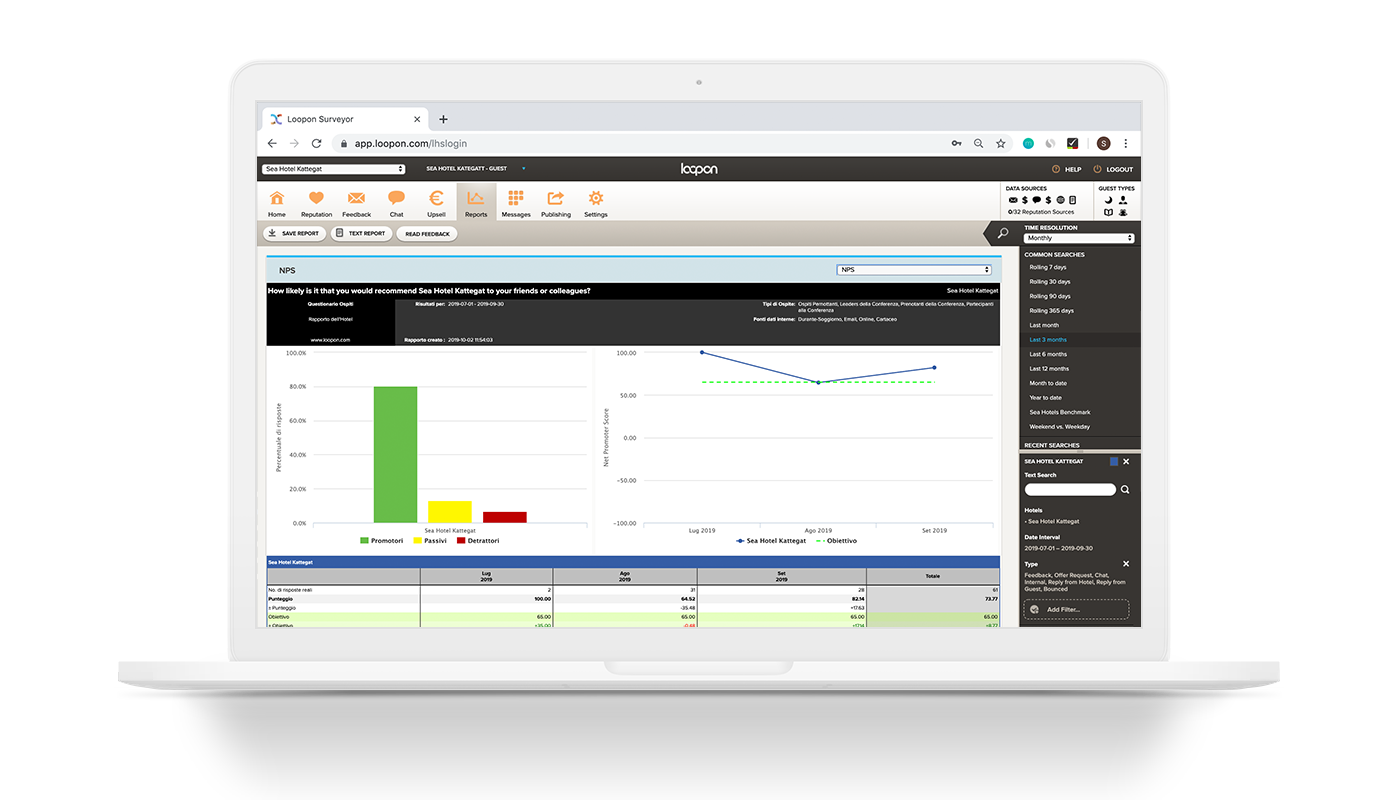
In our latest blog post we discuss how NPS can help shape your hotel’s success and act as an predictor of long-term growth.
First introduced in 2003 by Fred Reichheld in the Harvard Business Review article The One Number You Need to Grow, NPS has become widely acknowledged as a Key Performance Indicator (KPI) for companies around the world. Reichheld’s article presented the idea that there is a correlation between the percentage of customers who can be classified as promoters and overall business growth.
A big reason to the universal acceptance of NPS lies in its simplicity and versatility. Customers simply have to answer the question on a 1-10 scale and the respondents are grouped into either detractors (0-6), passives (7-8) or promoters (9-10). NPS can be applied to any industry, making it particularly useful. According to studies NPS is the most used customer experience KPI with nearly two thirds of all businesses surveyed tracking NPS.
Correlation with Business Success
Many of the most successful companies in the world measure NPS and use it as a metric for determining success. For example, companies such as Qantas, Hertz, Vodafone and Facebook openly state that they use NPS to track customer loyalty. NPS is also widely used as a benchmark for hotels and resorts across the globe and seen as a universally accepted KPI that can be applicable in most instances.
NPS has been proven to be a key indicator of growth through word-of-mouth in multiple industries. In fact, Fred Reichheld reports that NPS was either the best or second-best predictor of growth in 11 out of 14 industries. Reichheld also uses historical data to show how a positive growth in revenue is correlated with an increase in NPS. According to a study, an average increase in NPS by 7 points correlates with a 1% growth in revenue, indicating a positive relationship between NPS and business growth.
Detractors (score 0-6) are likely to have a negative impact on business growth as they may leave for a competitor or spread negative word of mouth, leading to less both short-term and long-term revenue. Passives (score 7-8) are somewhat satisfied customers and unlikely to look for another alternative. However, don’t neglect passives as they can easily turn into detractors or promoters, presenting both a great risk and reward for businesses that spend time analysing NPS. Promoters (score 9-10) are your most loyaly customers who are very satisfied with their experience and will spread positive word-of-mouth.

Application to the Hospitality Industry
The concept of NPS and business growth can be applied for hotels and resorts as well. Often hotels with an above-average NPS are experiencing greater growth or profitability depending on their goal or strategy. NPS acts as a predictor for both customer loyalty and customer satisfaction.
Why is there a correlation? Well, a high NPS score indicates that a larger percentage of your customers are promoters. Promoters drive real value as they purchase more (premium rooms and upgrades, breakfast/dinner, additional services), stay longer, refer friends and provide insightful feedback that can be acted upon. A higher number of promoters indicates more loyal customers and, likely, a larger number of guests that are willing to return in the future.
NPS is also a great benchmarking tool against competitors that allows you to see how you stack up against your closest rivals. According to Forbes, the average NPS for the hospitality (travel/restaurant) industry is 53, acting as a general benchmark. Companies operating with an NPS that is markedly above the average are often performing well according to other KPIs as well.
If you want to know more about why your hotel should measure NPS, continue reading here.
Key Takeaways
NPS is no magic number that will always correlate to business growth. Although NPS can act as a predictor of company growth, simply tracking and measuring NPS won’t see your business or hotel succeed. It is only one part of the solution. Understanding the why is the key to the positive correlation between NPS and revenue. When analysed and measured diligently, NPS can be a key indicator of growth and overall customer satisfaction. Over the years, NPS has been one of the best predictors of business growth and making it a part of your overall strategy can help your hotel succeed.
If you’re interested in starting to track NPS, Loopon’s Feedback Solution both measures and analyses NPS. It can be used to gather customer insights and group guests into the categories of detractors, passives and promoters, making it easier for your hotel to act on feedback and make NPS part of your long-term strategy. Click here to get started with a free 30 day trial.

